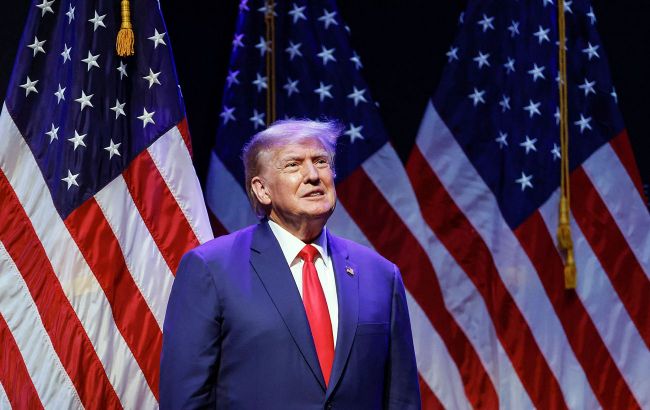Trump filed appeal against ban on running in primaries in state of Maine
 Republican Party candidate for the U.S. presidential election, Donald Trump (photo: Getty Images)
Republican Party candidate for the U.S. presidential election, Donald Trump (photo: Getty Images)
Lawyers for former President Donald Trump have filed an appeal seeking to overturn the decision banning him from participating in the Republican Party's presidential primaries in the state of Maine, reports The New York Times.
In the appeal, the lawyers for the politician noted that in making the decision to ban, Maine Secretary of State Shenna Bellows was a biased party, should have recused herself, and otherwise failed to ensure a lawful due process.
They also claim that Bellows lacked the legal authority to consider the constitutional issues raised by the challengers, committed numerous legal errors, and acted arbitrarily and capriciously.
The lawyers are demanding that the court overturn the secretary's decision, which they characterized as the product of a process infected with bias.
Presidential elections in the United States
The next presidential elections in the United States are scheduled for November 5, 2024.
According to forecasts, the main Democratic candidate will be the incumbent American leader, Joe Biden, while the Republicans are expected to nominate the former head of state, Donald Trump.
On December 28, the head of the Maine State Electoral Commission, Shenna Bellows, excluded Trump from the ballot for the 2024 elections. The decision is based on the 14th Amendment to the U.S. Constitution, which prohibits the participation in elections of organizers and participants in an insurrection, a status recognized by the court for the storming of the Capitol by Trump supporters on January 6, 2021.
On December 20, the Supreme Court of the state of Colorado also barred Trump from participating in the primaries in the state based on the 14th Amendment. Trump's team has appealed this decision to the U.S. Supreme Court, and a hearing on the appeal is scheduled for January 4, 2024. The court's decision is likely to have nationwide implications.
Trump denies any wrongdoing related to the Capitol riot and considers the legal claims against him unfounded.


